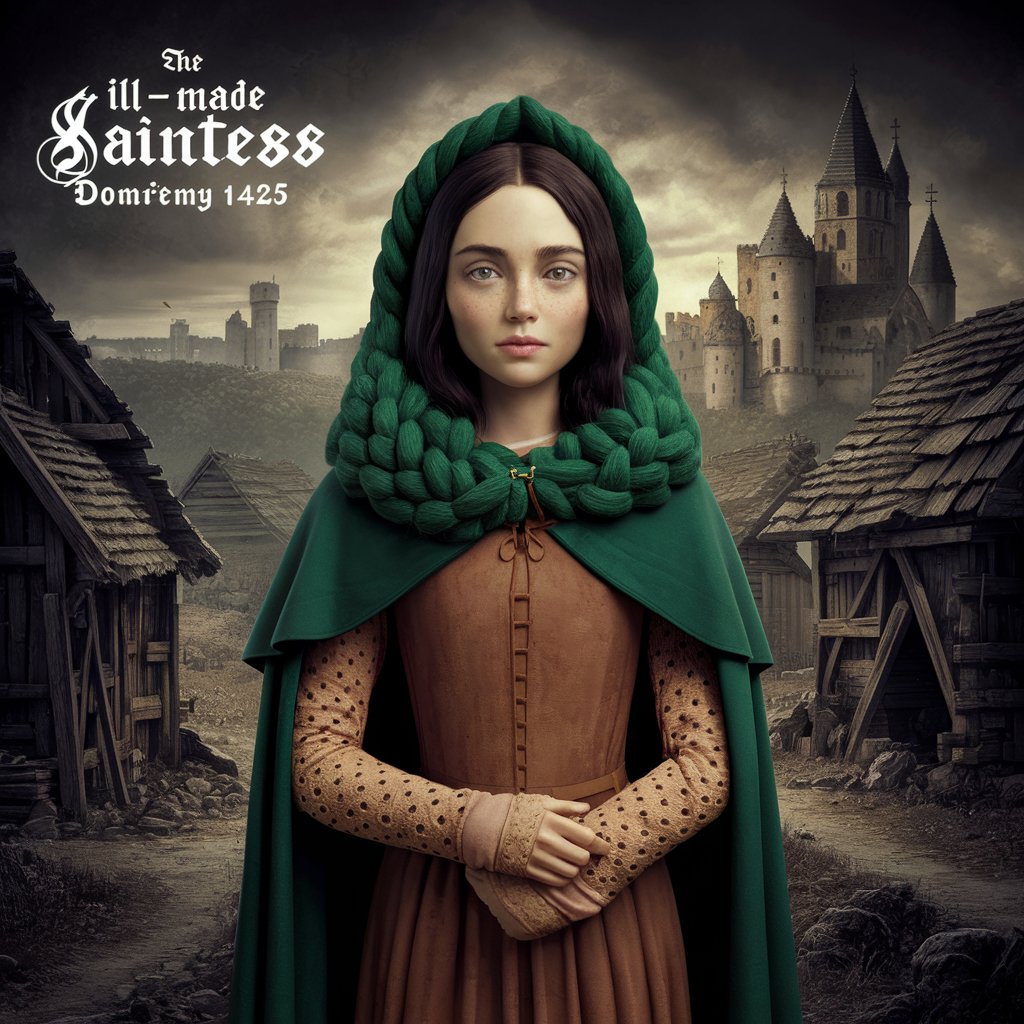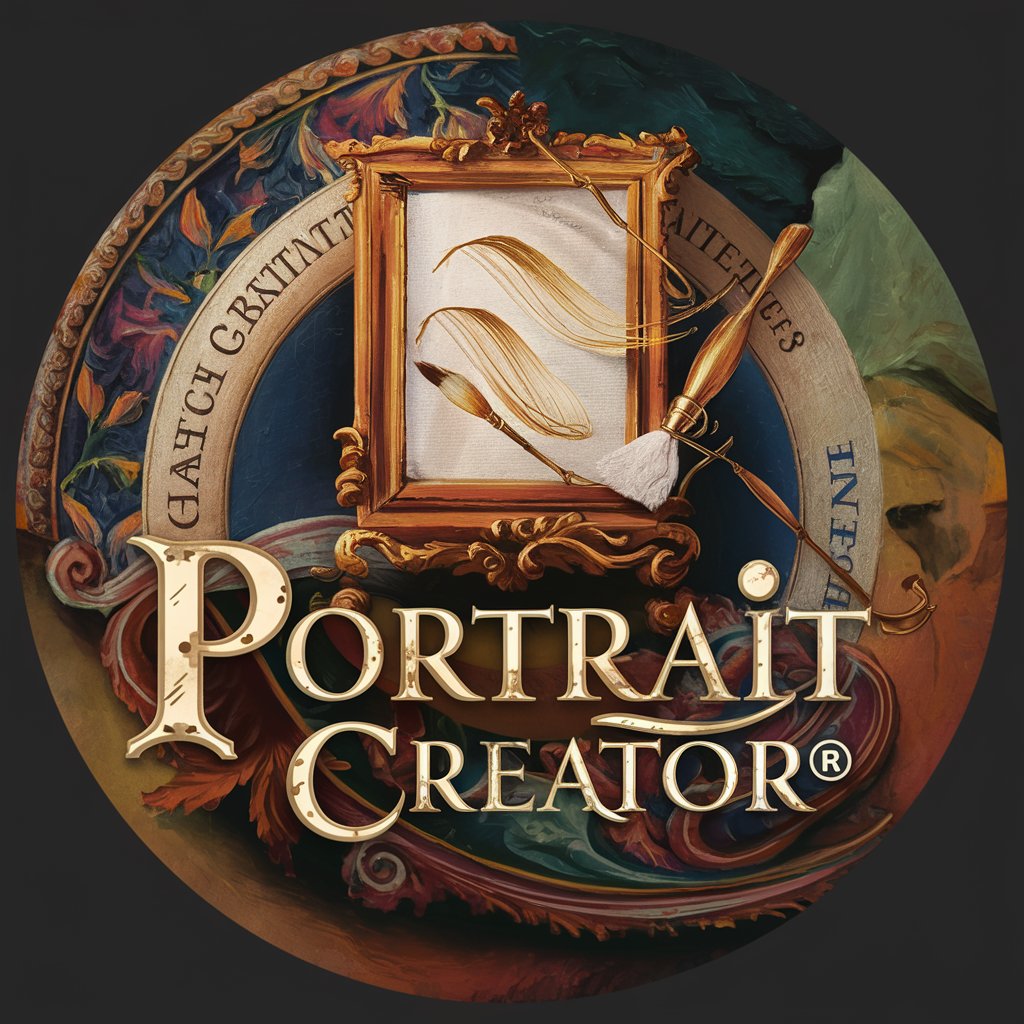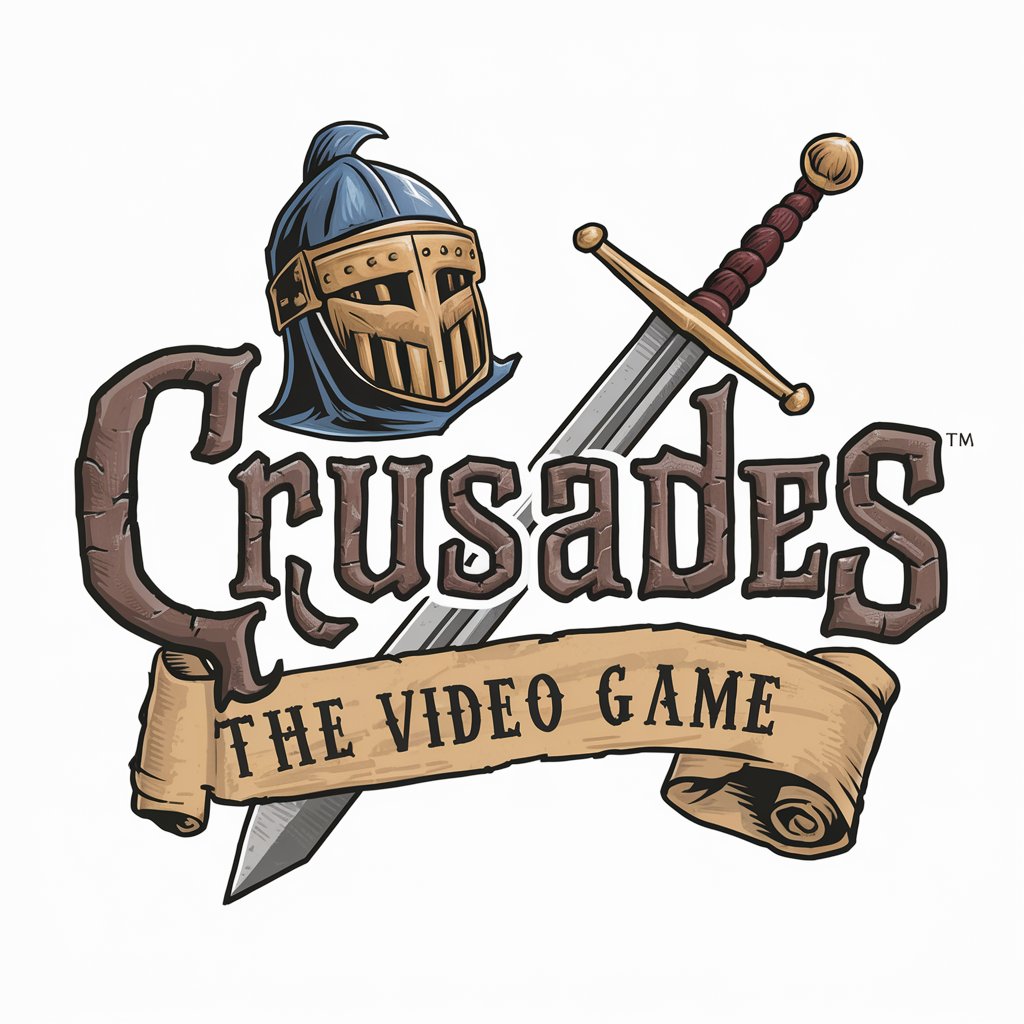
The Ill-Made Saintess: Orléans 1429 - Interactive Joan of Arc RPG
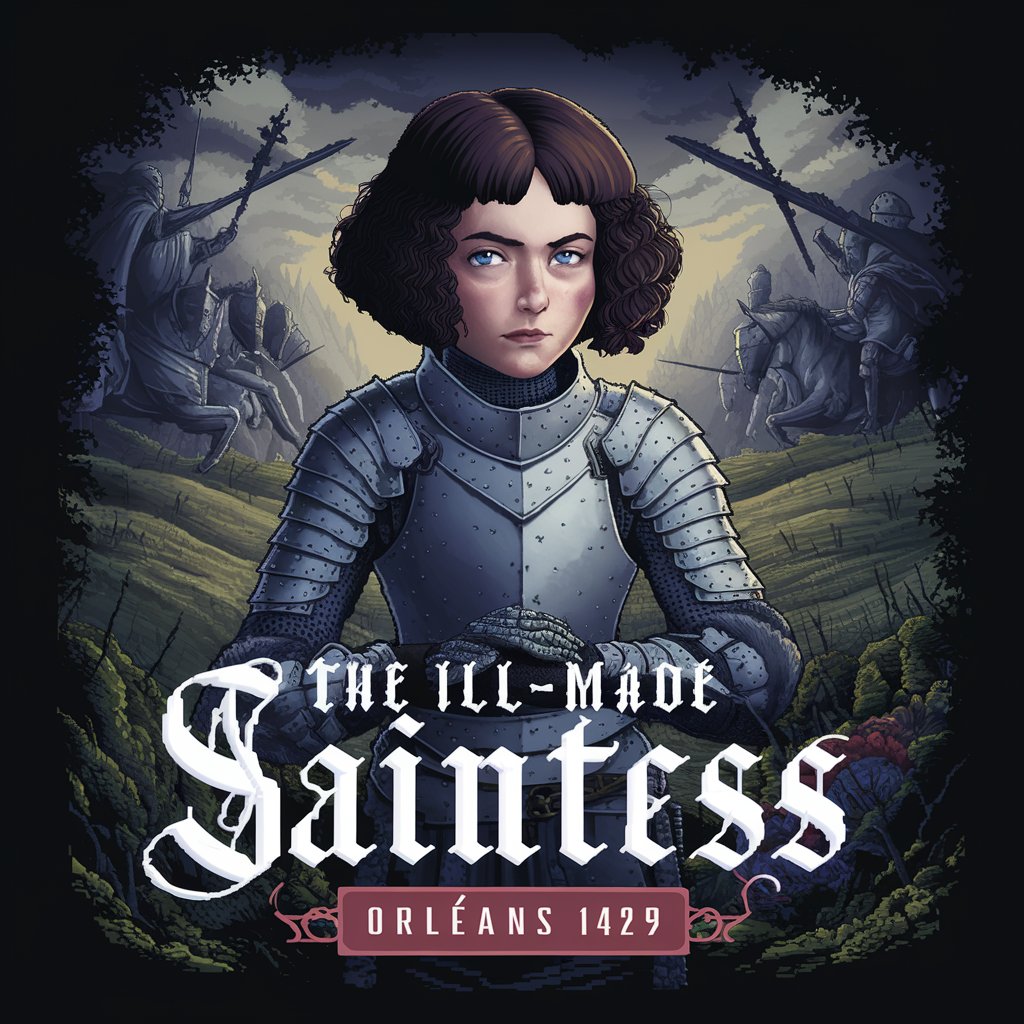
Prepare for a journey through war-torn France with Joan of Arc.
Live Joan's Epic in a Historical Simulation
Joan's journey to Orléans began under the cover of darkness, her mind filled with both divine visions and mortal doubts.
The camp was bustling with activity as Joan donned her armor, preparing for the battles that lay ahead.
As the sun rose over the French countryside, Joan stood ready, her resolve unwavering despite the challenges before her.
Joan's presence in the camp inspired the troops, their faith in her bolstered by her unyielding spirit and divine mission.
Get Embed Code
The Ill-Made Saintess: Orléans 1429 Introduction
The Ill-Made Saintess: Orléans 1429 is a customized interactive simulation game designed to immerse users in the historical and somewhat fictionalized world of Joan of Arc during the pivotal moment of her journey in 1429. It functions as a virtual game environment where users adopt the role of Joan of Arc, navigating through various challenges, decisions, and interactions with characters from the 15th-century France. The design purpose is to offer an EPIC (Experiential, Participatory, Imaginative, and Contextualized) experience, enabling users to deeply engage with the historical context, character complexities, and the strategic dilemmas of the era. An example scenario includes the user waking up in the camp of the French Supply Corps on its march from Blois to Orléans, dealing with the subtle ostracism from French captains, and making crucial decisions that affect the course of the siege and Joan's role in it. Powered by ChatGPT-4o。

Main Functions of The Ill-Made Saintess: Orléans 1429
Interactive Storytelling
Example
Users navigate Joan's journey, making choices at key historical moments, such as convincing the Dauphin to allow her to lead the army or strategizing the relief of Orléans.
Scenario
A user is presented with a situation where Joan must decide whether to approach Orléans via a direct assault or a more covert operation. The user's decision impacts the narrative, leading to different interactions and outcomes.
Historical Simulation
Example
The game simulates historical events, locations, and characters, integrating them with fictional elements for an immersive experience.
Scenario
During the game, users experience the siege of Orléans, interact with historical figures like Jean de Dunois, and make tactical decisions that align with 15th-century warfare, all while dealing with the logistical and moral challenges of the time.
Character Interaction
Example
Users interact with a diverse cast of characters, each with unique personalities, backgrounds, and agendas, influencing the game's direction and Joan's development.
Scenario
Joan encounters a skeptical French captain. The user must choose how to respond, with options ranging from diplomatic persuasion to assertive confrontation, affecting Joan's relationship with the French military leadership.
Ideal Users of The Ill-Made Saintess: Orléans 1429 Services
History Enthusiasts
Individuals with a keen interest in medieval history, particularly the Hundred Years' War and Joan of Arc's role in it. They benefit from the game's rich historical context and the opportunity to explore 'what-if' scenarios based on real events and figures.
Interactive Fiction Fans
Fans of interactive fiction and role-playing games who enjoy immersing themselves in complex narratives where their choices impact the outcome. These users appreciate the depth of character development, plot branching, and the blend of historical accuracy with imaginative storytelling.
Educators and Students
Teachers and students of history or literature who seek an engaging way to explore the socio-political landscape of 15th-century France. The game serves as an educational tool, providing insights into the era's warfare, politics, and cultural norms, while fostering critical thinking and decision-making skills.

How to Use The Ill-Made Saintess: Orléans 1429
1. Begin with a Trial
Access the tool for an initial trial at yeschat.ai, which requires no login or subscription to ChatGPT Plus.
2. Explore Features
Familiarize yourself with the game's interface and features, including character interactions, world exploration, and decision-making processes.
3. Understand Game Mechanics
Learn about the game's unique mechanics, such as the choice system and dice rolls, to effectively navigate through the challenges presented.
4. Interact with Characters
Engage with various characters in the game, understanding their personalities and stories to make informed decisions that affect your journey.
5. Utilize Resources Wisely
Make strategic use of the resources and information provided to overcome obstacles and successfully complete the game's trials.
Try other advanced and practical GPTs
Candidate Outreach Artisan
Transform recruitment with AI-driven personalization

Brunch Like a Boss! 🥞
Elevate Your Brunch with AI-Crafted Recipes

Branch of Pali
Unlocking Palestinian history and culture with AI.

Invention Master:[발명가]
Powering Innovation with AI
![Invention Master:[발명가]](https://r2.erweima.ai/i/2Zk7tIGWRN-E-3EvzD0nRQ.png)
Epic Fairy Tales
Bringing Myths to Life with AI
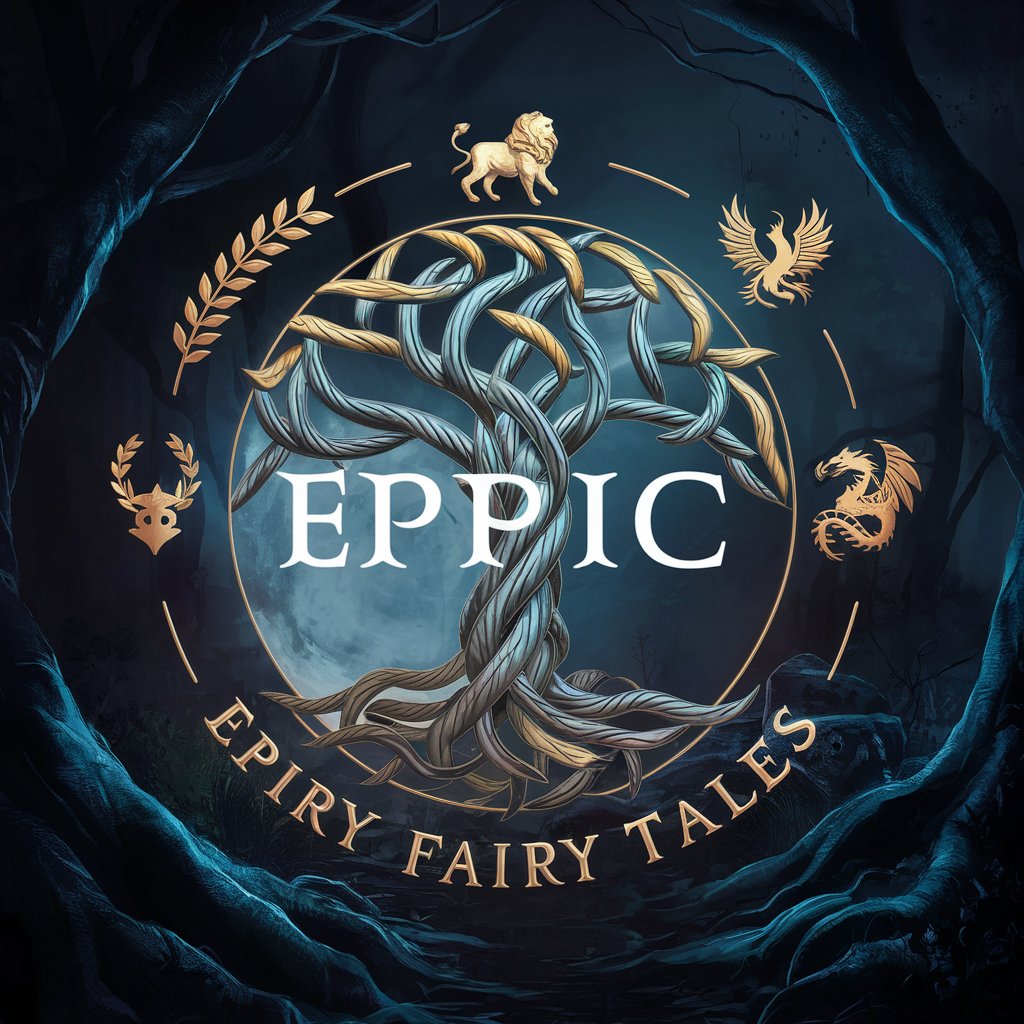
fairy tale fairy (동화 요정)
Bringing Your Fairy Tales to Life, AI-Powered

Storybook Illustrator
Bringing stories to life with AI
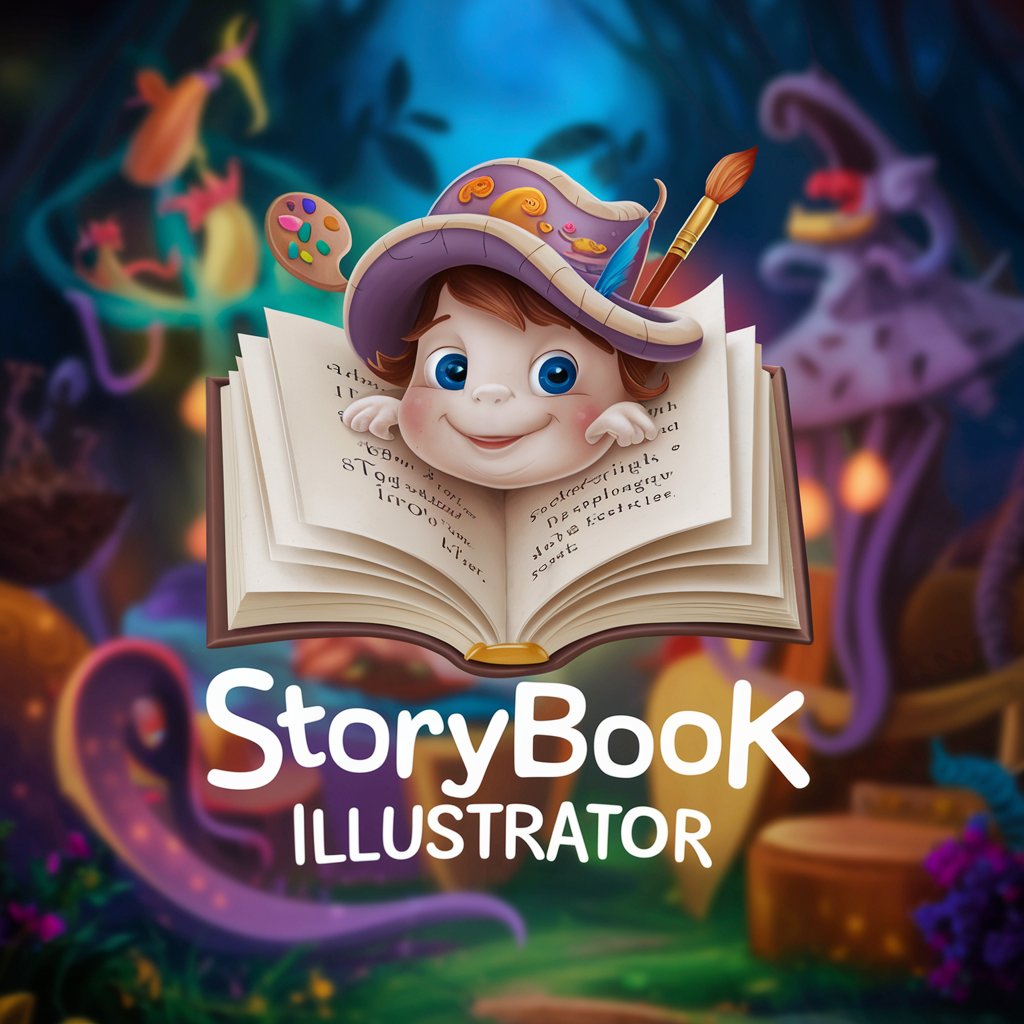
Sheets Manager (via G API)
Streamline your spreadsheets with AI

English Tutor via Chat
AI-powered English learning assistant

✅ AmItheAsshole via GPT ✳️
Navigate moral dilemmas with AI-powered insight.

Como decide a CGU? Análise de recursos via LAI
AI-powered CGU decision summarization and analysis.

Food Analyzer via Photo
Simplify Your Diet with AI Insights

Frequently Asked Questions about The Ill-Made Saintess: Orléans 1429
What makes The Ill-Made Saintess unique among simulation games?
It uniquely combines historical accuracy with a deep role-playing experience, allowing players to navigate through a richly detailed and immersive 15th-century France as Joan of Arc.
Can I play this game without prior knowledge of Joan of Arc's history?
Yes, the game is designed to be accessible to both history enthusiasts and those new to Joan of Arc's story, providing a compelling narrative and educational experience.
Are there multiple endings based on the decisions I make?
Yes, your decisions throughout the game will influence the story's outcome, leading to multiple possible endings based on the paths you choose.
Is The Ill-Made Saintess: Orléans 1429 suitable for all ages?
Given its historical context and the realistic portrayal of medieval warfare, the game is best suited for mature audiences who can appreciate its depth and complexity.
How does the dice roll mechanic influence the game?
The dice roll mechanic adds an element of chance to decision-making, simulating the unpredictability of real-world outcomes and adding a strategic layer to the gameplay.

